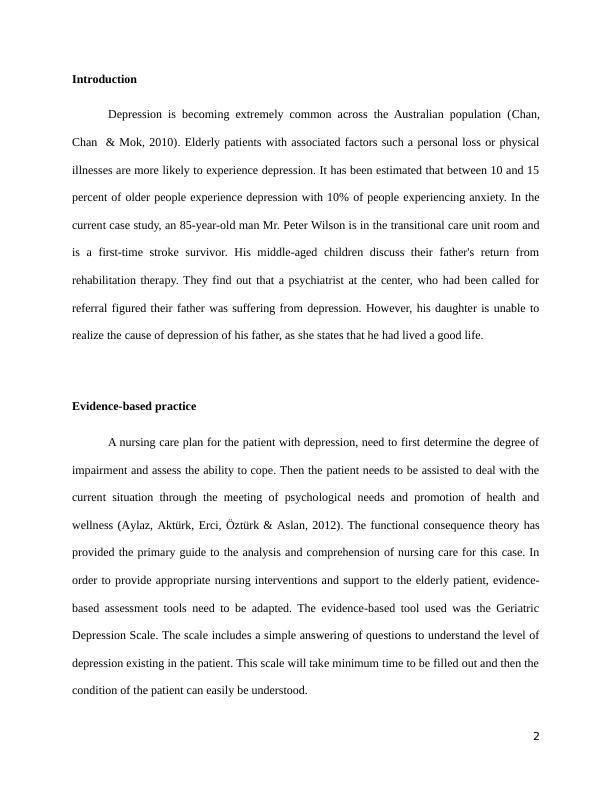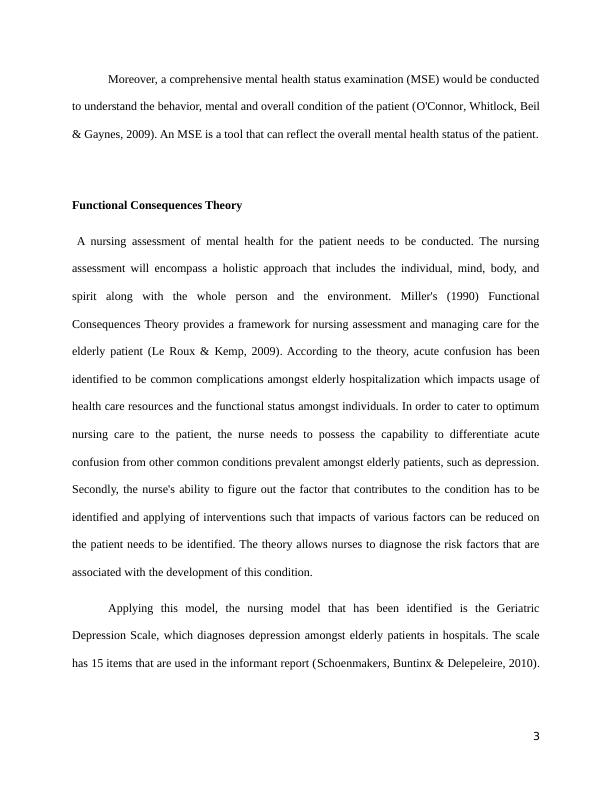Nursing Care Plan for Elderly Patient with Depression
Students are required to select a case study from their weekly activities and further develop it as an assignment. The assignment should include an introduction, application of evidence-based practice, and application of the Functional Consequences Theory to the case study.
10 Pages2261 Words2 Views
Added on 2022-12-30
About This Document
This article discusses the nursing care plan for an elderly patient with depression. It explores the assessment tools and interventions used, as well as the application of the functional consequences theory in nursing care. The article also covers the goals, interventions, and evaluation of nursing care, as well as the impact of theory-informed practice on patient outcomes. Additionally, it discusses the resources and management support required for effective nursing interventions.
Nursing Care Plan for Elderly Patient with Depression
Students are required to select a case study from their weekly activities and further develop it as an assignment. The assignment should include an introduction, application of evidence-based practice, and application of the Functional Consequences Theory to the case study.
Added on 2022-12-30
ShareRelated Documents
End of preview
Want to access all the pages? Upload your documents or become a member.
Mental Health Nursing Assignment | Mental State Examination
|15
|3800
|143
Nursing Assessment for Impaired Safety: Case Study Analysis
|7
|1855
|408
Healthcare for Elder people | Question and Answer
|9
|2405
|24
Promoting Excellence in Older People’s Care in Nursing
|18
|5136
|324
Principles of Mental Health: Nursing Care for Altered Mental Status Patients
|15
|3961
|448
Mental Health Nursing
|8
|2271
|274



